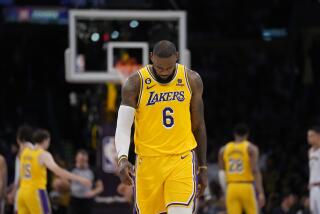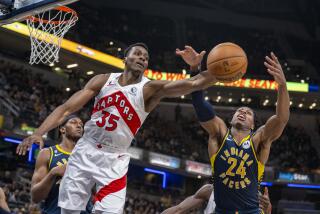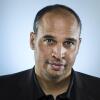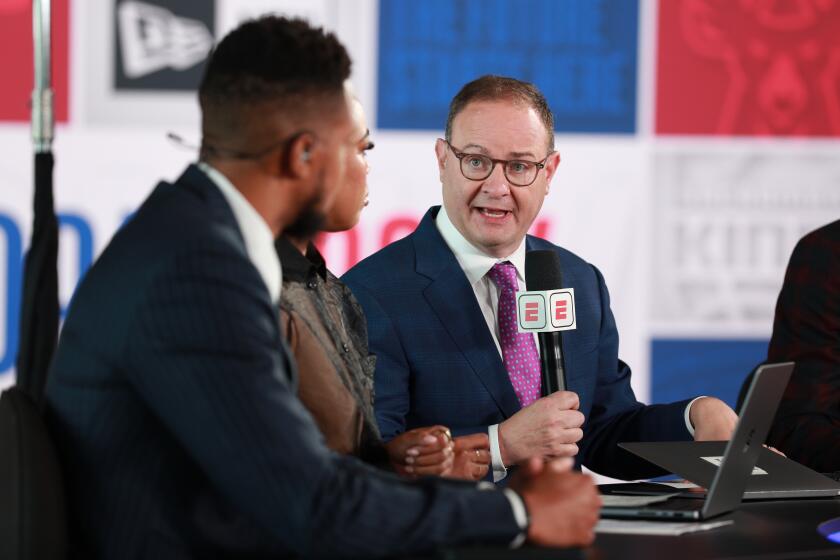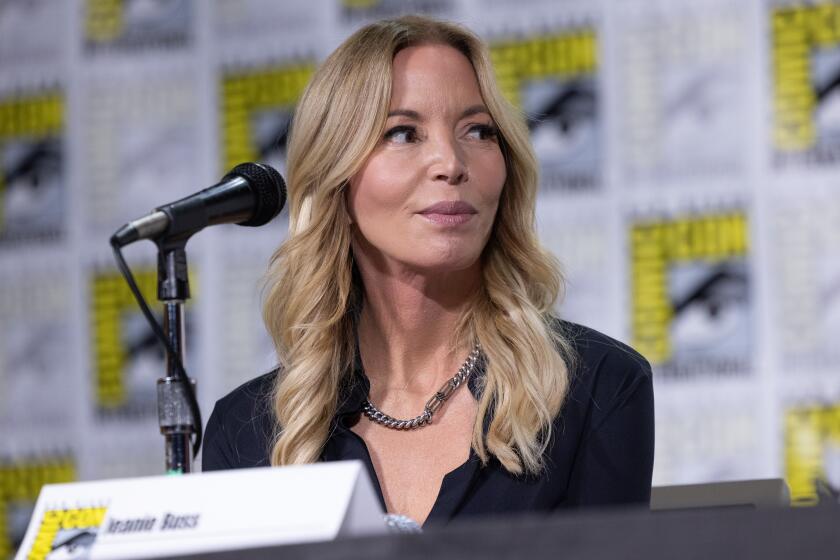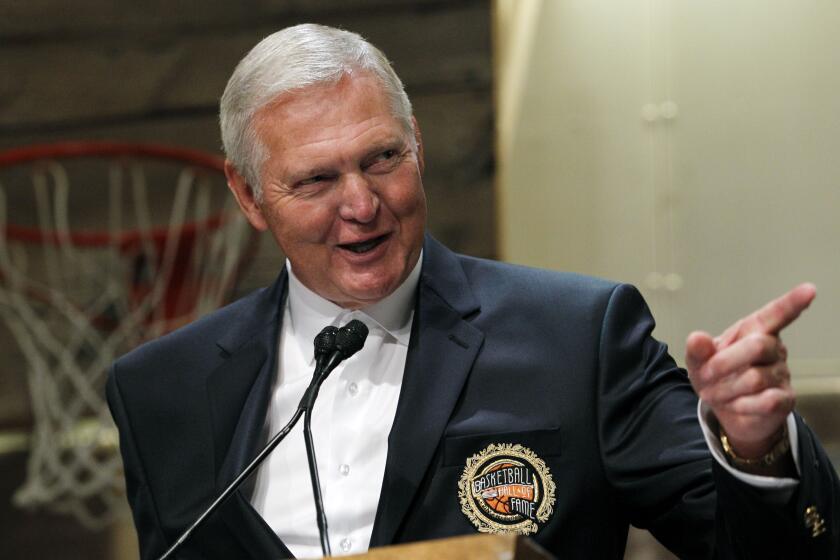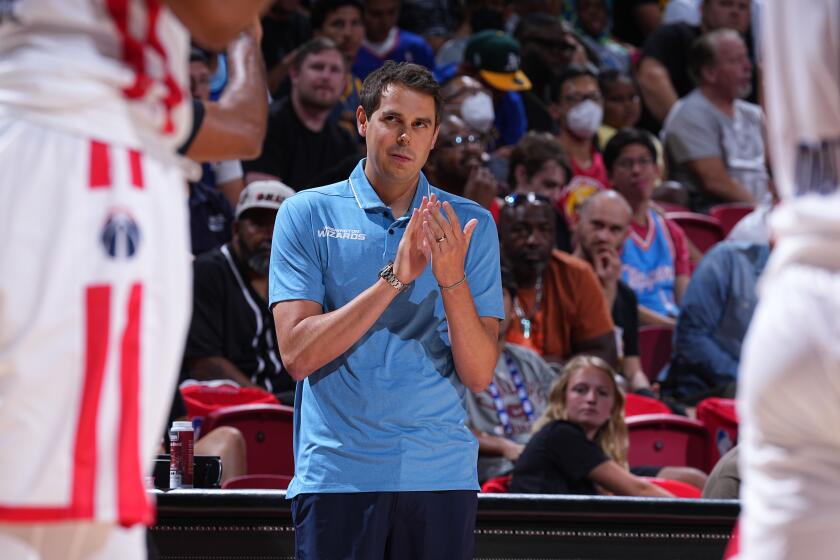NBA reflects social changes
On Martin Luther King Day, just before the Lakers-Cavaliers game, LeBron James stood in front of a swarm of reporters, his light banter turning serious when the subject turned to this week’s historic inauguration, and to the wise preacher whose struggle made President Barack Obama a possibility.
“It’s not even about playing basketball on this day,” James said. King saw “change before change even happened . . . saw the future before the future happened. . . . You talk about leaders in the NBA, but no leader in the NBA or any sports compare to MLK, what he did for this world.”
Certainly, were he alive and on hand at the buzzing, booming Staples Center on Monday night, King would have been greatly pleased to see the way African American athletes have been embraced.
In 1968, when his life was cut short, such acceptance was still far off. A professional basketball team starting five African Americans would nearly be national news. A black head coach leading a pro team such as the Cleveland Cavaliers’ Mike Brown? When King was killed, only Boston Celtics great Bill Russell, named Boston’s player-coach in 1967, had reached that level. In that era, the notion of a black star such as Russell being used, LeBron-like, as a pitchman in a glitzy, national advertising campaign would have been laughable.
Yes, King would have been well satisfied by the great progress of blacks in sport. But I’m guessing he would be just as pleased by the strong wave of globalism we’re witnessing on our fields and courts -- among major sports in America, no more than in the NBA. I say this because globalism in pure form, the idea that everyone on the planet is part of one tribe, helped form the foundation of King’s philosophy.
“We are challenged to develop a world perspective,” King said in a sermon at Washington’s National Cathedral only days before his death. “No individual can live alone, no nation can live alone. . . . We are tied together in the single garment of destiny, caught in an inescapable network of mutuality.”
Years before the Internet, King pounded at the point that as the world shrinks, we must pay stronger attention to how we treat our neighbors.
The sports world gives us that chance.
It’s no secret, of course, that foreign players now have a big effect on the NBA, but sometimes we forget how profound that impact is. On Monday night, the Cavaliers’ starting five included Serbia’s Sasha Pavlovic and Brazil’s Anderson Varejao. Usually it includes Zydrunas Ilgauskas, from Lithuania, held out by an injury.
The Lakers, meantime, started Serbian Vladimir Radmanovic and Spaniard Pau Gasol. That’s 40% of the starters in the globally broadcast Lakers-Cavaliers game who were born and bred outside America, which is not all that uncommon these days in the NBA. Roughly 20% of the league’s current players are foreign-born. Many more are on the way.
Much is made of basketball and the NBA being the near exclusive province of African Americans. Sadly, a guy like Canada’s Steve Nash wins an MVP award, heads turn and some cry conspiracy. But the fact is, with each passing year, basketball becomes more a world game, its international players bigger and bigger stars. Wonderful. It may not be long before someone from Europe or South America or China is coaching an NBA team. It might not be long before a player with the brilliance of a LeBron cruises through his prime years in Paris or Istanbul or Shanghai.
And here we return to King’s vision, because it should not be forgotten that while he focused his energies on the plight of African Americans during the 1950s and 1960s, he always thought in deeper, broader terms.
King studied Gandhi, the German theologian Dietrich Bonhoeffer, and many others from beyond our shores. While American culture tends toward the insular, he clung to the idea that there was an arc of justice that swept far beyond national borders (even out into the universe), and frequently reminded that all citizens of the world are connected in very real ways, which is partly why he opposed war in Vietnam.
When I asked the thoughtful Lakers center Gasol about King, he admirably focused on the progress made by American blacks since the civil-rights era. Ironically, it appeared that it was lost on one of our great global stars that King dreamed of days when the entire planet would begin coming together in new ways. A guy like Gasol -- born in Barcelona, seasoned as a player in Memphis (coincidentally, where King died), and blooming into a global star in the shadow of Hollywood -- is the very embodiment of this dream.
It’s fine that Gasol didn’t quite get what I was driving at, that what he focused on was the black experience. His being among us, the growing understanding we gain when borders are crossed for work or play or big-time sport, is enough.
During the game, I watched Sasha Vujacic, a son of Slovenia, have a layup swatted away by James, a descendant of African slaves who is now one of the most recognizable figures in the sporting world. Vujacic retrieved the ball, stepped back, and launched a three-point jump shot: Swish. The crowd rose as one, and let loose a thick current of cheers. I imagined Martin Luther King sitting next to me. I imagined a huge smile on his face.
--
More to Read
All things Lakers, all the time.
Get all the Lakers news you need in Dan Woike's weekly newsletter.
You may occasionally receive promotional content from the Los Angeles Times.
